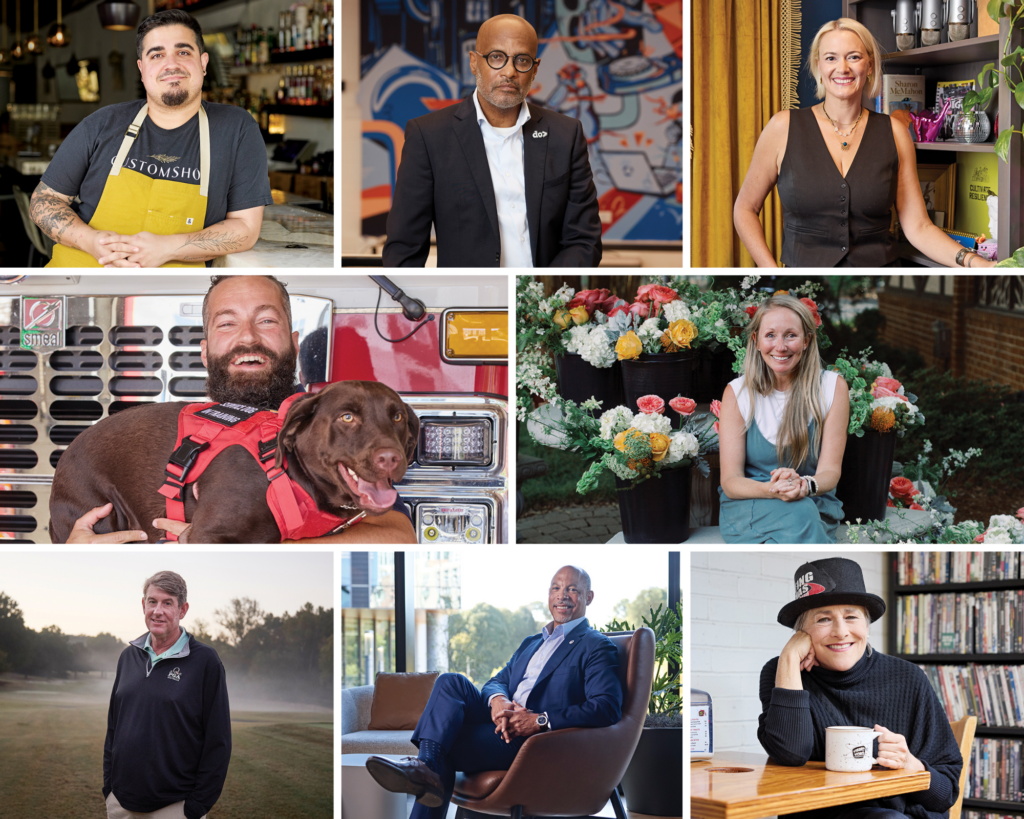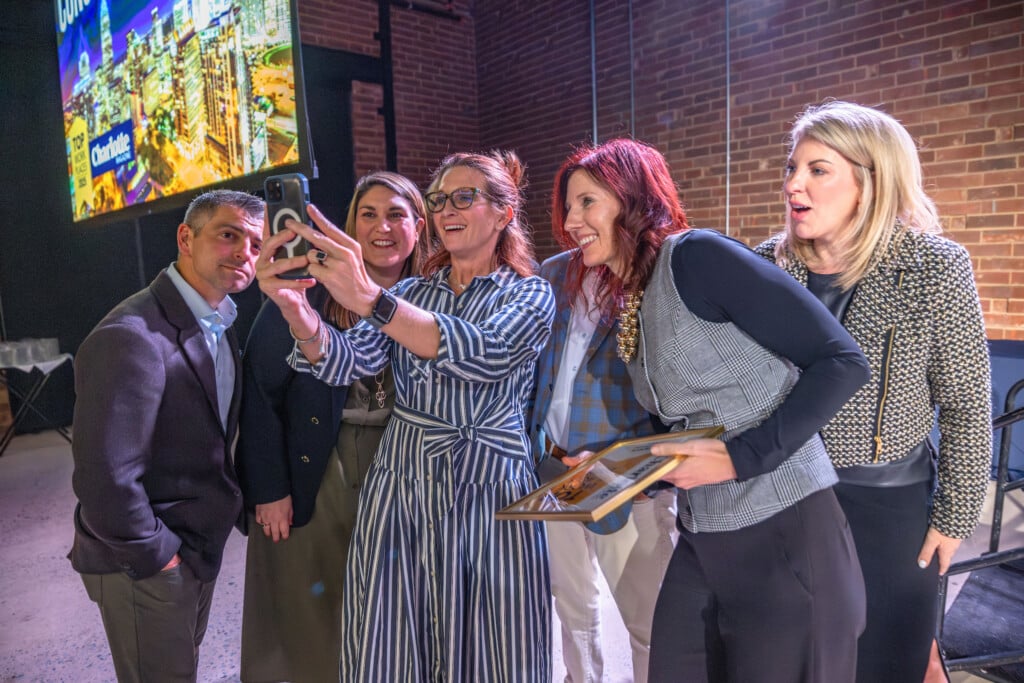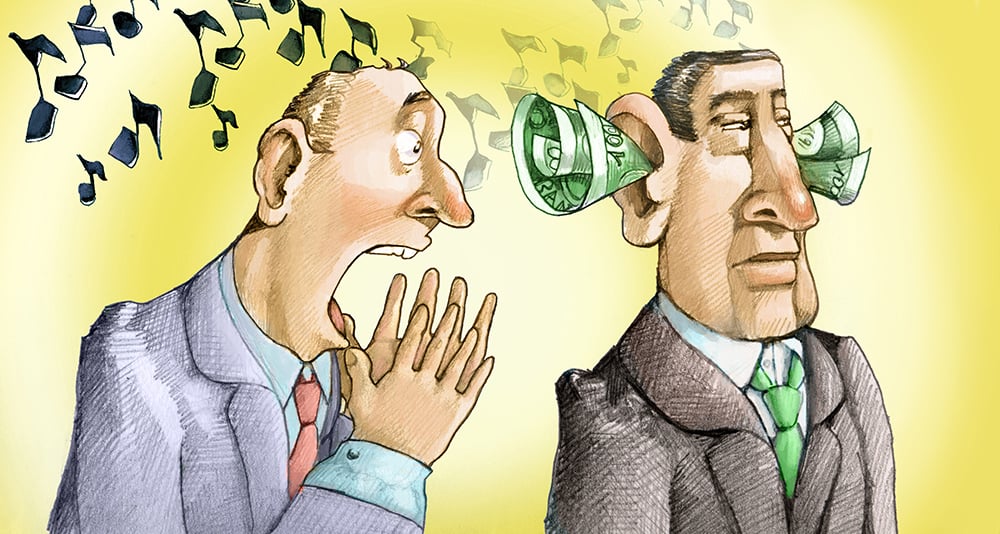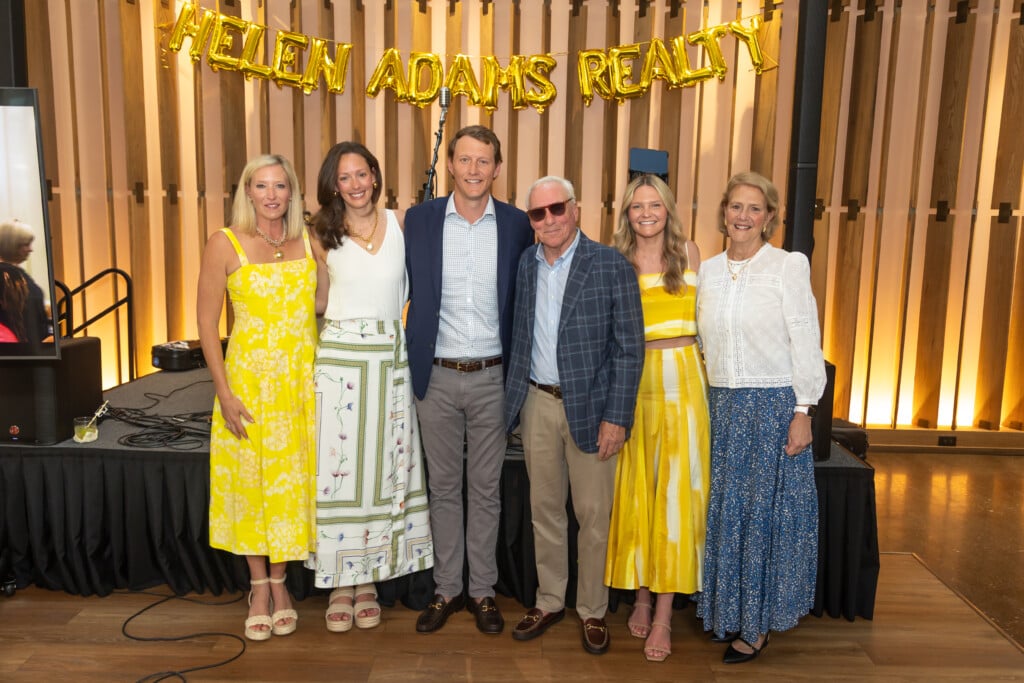Life Lessons: Duke Energy’s Swati Daji
The Duke Energy executive leading the company’s shift to more sustainable energy sources
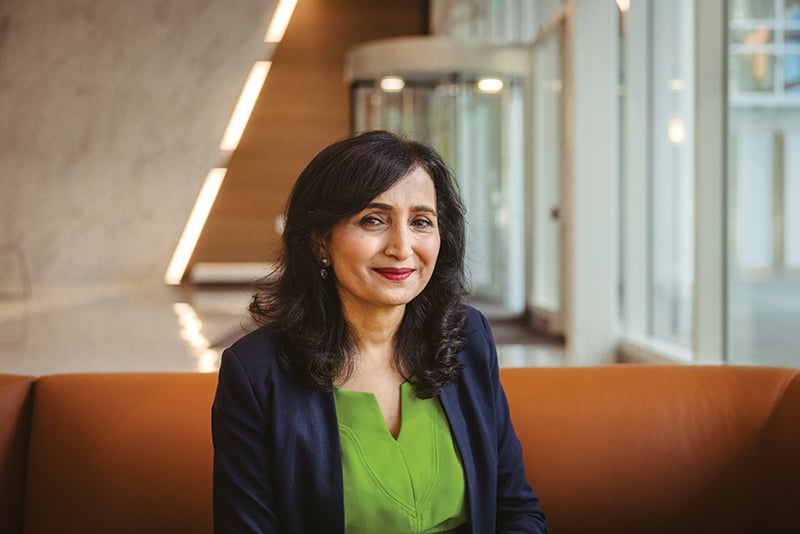
As Charlotte sets lofty goals to cut down on its use of greenhouse gas-producing fossil fuels, a significant portion of the burden falls on Swati Daji. She’s the senior vice president for enterprise strategy and planning at Duke Energy. Since May 2021, it’s been her job to determine where, how, and with what the energy giant can replace coal, which produces carbon dioxide when burned.
But Daji, 58, never planned on a career in energy. What she did plan on was a career, something still novel for women in her native India when she was growing up. Like most women in Bombay (now Mumbai) at the time, her mother was a homemaker. Any time Daji was home from school, her mother wanted her in the kitchen. But Daji would run out of the house and into her father’s car to tag along to the resin and varnish factory he owned.
“My dad was so welcoming of that. He didn’t really subscribe to that culture of, ‘Oh, you have to learn cooking.’ He’d say, ‘You want to come to the office and learn office things? Come on over,’” Daji tells me over Zoom in September. “He influenced me to pursue the things I dream about.”
She had a bachelor’s in science from the University of Bombay before she was 20. She married her husband, Vijay, a nuclear engineer, and in 1985 followed him to Clemson, South Carolina, where he worked at nearby Oconee Nuclear Station. She got her MBA in finance from Clemson University, then moved to Charlotte in 1988 and worked in banking for two years. Vijay joined her in Charlotte when he took a job at Duke Energy in 1990, and the company culture impressed her. The next year, she accepted a job in Duke’s finance department. She and her husband remain at Duke Energy.
“It just kind of happened that I ended up in energy, but then energy inspired my other passions in different ways, so now it’s become my passion,” Daji says. “Now I don’t want to do anything else.”
Daji’s words have been edited for length and clarity.
Mumbai was an up-and-coming cosmopolitan city, like New York is to the U.S., so I had a lot of exposure. I always went to English-medium schools, so that made it more versatile as I came here. But we also had to learn two other languages—the national language, Hindi, and then I had to take another language. I could’ve taken French, but I decided to take Sanskrit.
I remember my mother was always worried, as was the cultural thing at that time, that I had to learn to roll a chapati, or I had to learn how to cook vegetables so that when I’m married, I can feed my family. It was her mindset based on her life. But that wasn’t my perception of my life.
Dad was very encouraging to let me do what I wanted to do rather than what was socially and culturally the right thing to do. So that did influence me to always take chances. … And that influenced how I raised my children. They are very independent. They are emotionally connected but not emotionally dependent. There’s a difference. One son is a doctor, and he’s in urgent care in Fort Mill, and the other is an orthopedic surgeon in residency in West Palm Beach, but he has desire to come back to the Carolinas.
As I studied, I wanted to apply myself and have my own individuality, a career, my own identity, and so on. I was looking at India, too. I almost applied to be a chartered accountant, which is like a CPA here. There was this cultural revolution going on at the time there, where women didn’t necessarily have to be homemakers; they were also getting out in the workplace.
But it was more prevalent here, and it just so happened that I had met my husband a long time ago, when we were in high school, but then he had moved here. When he came back (to visit), we rekindled, and so the marriage also brought me here. The other angle was I wanted to really have the opportunity to grow, and the U.S. offered that opportunity more robustly at that time.
Destiny brought me here, to South Carolina. That’s where I went to Clemson. At first, they told me I had to repeat my undergraduate degree, and I was like, “No.” Because I think their experience was that there was going to be a communication barrier and the learnings were different. But I got my hours converted to what the equivalent would be, and finally I got into the MBA program.
Once I graduated, I was looking to which direction I could go. I could go to Atlanta or Charlotte, and Charlotte became more attractive to me because it was the banking mecca, and it was more of a growing city. I have seen Charlotte grow as I have grown here, so this is home. I’ve spent more years in Charlotte than anywhere else.
Energy is so foundational to every community and city, so I joined Duke Energy in December of ’91 and never looked back.
My background is in business and finance, so my career started with quite a few roles there. But very quickly, I diversified my experiences. I’ve been part of the regulated business, but from time to time during the journey of Duke Power to current Duke Energy, we’ve been a pipeline business, we’ve been a non-regulated business. I had a great opportunity to have roles in both.
Today, I’m in charge of strategy and resource planning for the company, and I take those two jobs very seriously. Of course, nobody does their job by themselves. It’s a very cross-functional process. We bring all our thought processes together to determine the why, what, and how of what my company’s going to do. Not just in North Carolina—in South Carolina, Florida, Indiana, Kentucky, and Ohio. When we create our strategy, we consider each jurisdiction like a child. They all have unique personalities, unique needs.
My job requires setting goals alongside my customers, our communities, our legislators, and our regulators. It’s my job to figure out what resources are coming when, which ones to retire, and what to replace them with. My job is to merge (goals) together into a cohesive plan and present it to our regulators and, in turn, implement it at a company level. We have to think about, What is today, but what is tomorrow, and what is 10 years down (the road) going to look like? What will 15 years from now look like?
This is legacy-setting work. This is going to define the next 50 years and how our children and our communities grow—survive or thrive.
Mayor Lyles has a vision of making Charlotte a “smart city.” She thinks that Charlotte can be a pilot or perhaps even somebody the other cities can follow in terms of how we do what we can do to become cleaner and sustainable.
Energy is such a big part of whenever any city is thinking about any transformation. We have so many transformational things that are coming along the way. Like the Corridors of Opportunity. The Spectrum Center—they want to really expand that. There’s the Pearl District that is coming up, the medical school. There’s the River District. Charlotte is so primed for growth. Whenever something is new, you can shape it better, because when it’s old, it needs breaking before building. Charlotte’s a good (city to pilot in) because it’s growing, the mayor has aspirations and goals that align with what we can help with, and there are transformative and innovative solutions on the horizon that can enable it.
I became passionate about energy with the transformation that energy has done in the last 30 to 40 years. At that time, it was the nuclear renaissance, and now, it’s this clean energy transition. As I look to the rest of my life, energy is it.
I’m a social person. I have friends who I call extended family, who I can call up any time. Sometimes I say, “Today, we are meeting in our PJs for a cup of tea after dinner.” We vacation together. On Friday evening, we plan what we are going to do for the next two and a half days.
I think I have the coolest job, and I feel very blessed to be doing what I’m doing. Because I can look in the eyes of my two sons and say, “I did something in my role that made this state and this community that you’re going to live in, that your children are going to live in, better than I thought it would have been otherwise.”
Tess Allen is the associate editor.
